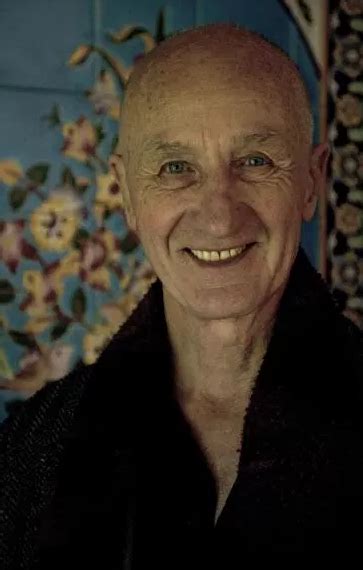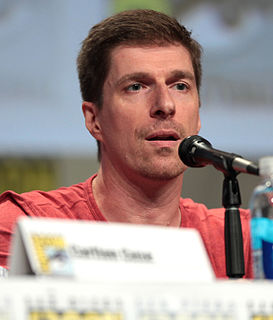A Quote by Douglas Adams
To Trin Tragula's horror, the shock completely annihilated her brain; but to his satisfaction he realized that he had proved conclusively that if life is going to exist in a Universe of this size, then the one thing it cannot afford to have is a sense of proportion.
Related Quotes
In a world of monotonous horror there could be no salvation in wild dreaming. Horror he had adjusted to. But monotony was the greater obstacle, and he realized it now, understood it at long last. And understanding it seemed to give him a sort of quiet peace, a sense of having spread all the cards on his mental table, examined them, and settled conclusively on the desired hand.
When a man sees a dying animal, horror comes over him: that which he himself is, his essence, is obviously being annihilated before his eyes--is ceasing to be. But when the dying one is a person, and a beloved person, then, besides a sense of horror at the annihilation of life, there is a feeling of severance and a spiritual wound which, like a physical wound, sometimes kills and sometimes heals, but always hurts and fears any external, irritating touch.
There is no such thing on earth as an uninteresting subject; the only thing that can exist is an uninterested person. Nothing is more keenly required than a defence of bores. When Byron divided humanity into the bores and bored, he omitted to notice that the higher qualities exist entirely in the bores, the lower qualities in the bored, among whom he counted himself. The bore, by his starry enthusiasm, his solemn happiness, may, in some sense, have proved himself poetical. The bored has certainly proved himself prosaic.
The great French Impressionist painter Renoir, right at the end of his very long life, said to a friend, "I am just now learning to paint." Renoir carried his gift with a humility which realized how much he still had to learn. Anyone who goes deeply into a field in life and realizes this, gains a sense of proportion that can only make you humble.
A real man doesn't have to run from his mother, and may even have to face the reality that no great deed is going to be great enough for him to ransom himself completely, and he may always be in his mother's debt. If he understands that . . . he won't have to feel guilty, and he won't have to please her completely. He can go ahead and be nice to her and let her be part of his life.
But when I realized it was actually going to be this portrait of the artist, birth to death, I had to then discover who Margaret as a young woman would be. I had to find the different voices for her throughout her life. I had a lot of fun discovering that. I had a lot of fun writing the childhood sections. By imagining her childhood, I was able to come up with this voice that matures as she gets older.
Then I realized what separated us: what I thought about him could not reach him; it was psychology, the kind they write about in books. But his judgment went through me like a sword and questioned my very right to exist. And it was true, I had always realized it; I hadn't the right to exist. I had appeared by chance, I existed like a stone, a plant or a microbe. My life put out feelers towards small pleasures in every direction. Sometimes it sent out vague signals; at other times I felt nothing more than a harmless buzzing.
And then he pressed into her. First his thighs, then his middle, his chest, and finally his mouth. She made a whimpering sound, but its definition was unclear even to her, until she realized that her arms had gone around him instinctually, and that she was clutching his back, his shoulders, her hands restless and greedy for the feel of him. He kissed her openmouthed, using his tongue, and when she kissed back, she felt the hum that vibrated deep inside his chest. It was the kind of hungry sound she hadn’t heard in a long time. Masculine and carnal, it thrilled and aroused her.
This person had arrived, he had illuminated her, he had ensorcelled her with notions of miracle and beauty, he had both understood and misunderstood her, he had married her, he had broken her heart, he had looked upon her with those sad and hopeless eyes, he had accepted his banishment, and now he was gone. What a stark and stunning thing was life- that such a cataclysm can enter and depart so quickly, and leave such wreckage behind!
It sometimes strikes me that the whole of science is a piece of impudence; that nature can afford to ignore our impertinent interference. If our monkey mischief should ever reach the point of blowing up the earth by decomposing an atom, and even annihilated the sun himself, I cannot really suppose that the universe would turn a hair.



































